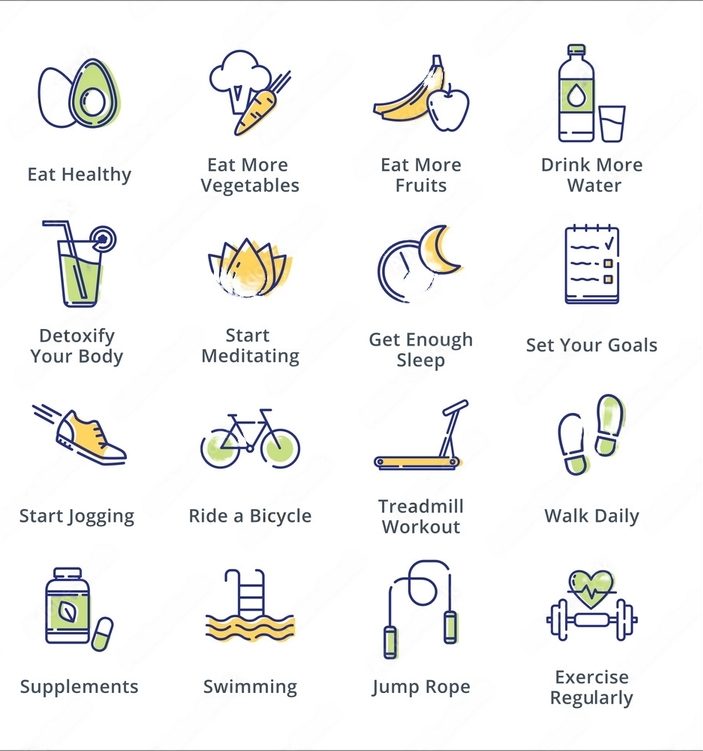Table of Contents
ToggleIntroduction
February is not just a month of love, but also a month dedicated to our most vital organ – the heart. Taking care of our hearts goes beyond just one day or week – it requires a constant commitment to heart health throughout the year. In this article, we will delve into the significance of American Heart Month and explore various strategies and practices for maintaining 24/7 heart health. So let’s dive in and discover how we can give our hearts the care they deserve.

Understanding Heart Health
Before diving into the realm of heart health, let’s first understand the intricate workings of our cardiovascular system. Our hearts are the powerhouse of our bodies, pumping oxygen-rich blood throughout our system. However, various conditions can affect our heart health, including heart disease, hypertension, and more. By understanding the basics of heart health, we can take proactive steps to protect and strengthen our hearts.

The Significance of American Heart Month
American Heart Month has a rich history, dating back to its establishment in 1963 by President Lyndon B. Johnson. The primary purpose of American Heart Month is to educate and create awareness about the importance of maintaining a healthy heart. By dedicating an entire month to heart health, we can reach a wider audience and inspire individuals to prioritize their cardiovascular well-being.

Lifestyle Changes for Heart Health
To ensure 24/7 heart health, we need to make conscious lifestyle changes. Healthy eating habits play a vital role in fueling our bodies with the right nutrients. Incorporating a balanced diet rich in fruits, vegetables, whole grains, and lean proteins can provide the essential building blocks for a healthy heart. Additionally, regular physical activity helps improve heart health by strengthening the cardiovascular system and reducing the risk of heart disease. Managing stress through techniques like meditation, deep breathing exercises, and adequate sleep is also crucial for maintaining a healthy heart.

Heart-Healthy Recipes and Meal Plans
Discovering delicious and heart-healthy recipes can make maintaining a healthy diet enjoyable. By incorporating nutrient-rich ingredients into our meals, we can support optimal heart health. Planning meals in advance is also essential, as it ensures that we consistently make heart-healthy choices throughout the month. By exploring a variety of recipes and meal plans, we can keep our taste buds satisfied while nourishing our hearts.

The Role of Exercise in Heart Health
Exercise is a key component of maintaining a healthy heart. Cardiovascular exercises such as brisk walking, jogging, cycling, and swimming get our hearts pumping and improve overall fitness. Strength training is equally important, as it helps build muscle, increases metabolism, and improves heart health. By incorporating a combination of cardio and strength training exercises into our fitness routines, we can maximize the benefits for our hearts.

Taking Care of Your Heart 24/7
Heart health is not limited to specific hours of the day – it requires round-the-clock care. Quality sleep is essential for heart health, as it allows our bodies to repair and rejuvenate. Additionally, managing risk factors such as high blood pressure, high cholesterol, and diabetes is crucial. By identifying these risk factors and taking proactive measures to manage them, we can reduce the likelihood of developing heart disease.
Resources and Support for Heart Health
During American Heart Month, numerous local organizations and events offer resources and support to individuals on their heart health journey. These resources can include workshops, seminars, and screening events that provide valuable information and assistance. In addition, online communities and support groups offer a virtual space where individuals can connect, share experiences, and seek support from others who are also committed to heart health.
Conclusion:
Heart Health for a Lifetime As we wrap up American Heart Month, let’s remember that heart health is a lifelong commitment. By making small changes and staying dedicated, we can ensure a healthier future for our hearts. Let’s continue to prioritize heart health not just in February but throughout the year. Our hearts deserve our love and care every day.
FAQs (Frequently Asked Questions)
What are some signs of heart disease to watch out for?
- Common signs of heart disease include chest pain or discomfort, shortness of breath, fatigue, dizziness, and irregular heartbeat. However, it’s important to consult a healthcare professional for a proper diagnosis.
Can heart disease be prevented?
- While certain risk factors for heart disease, such as family history, cannot be changed, many others can be managed through lifestyle modifications. By adopting a heart-healthy diet, engaging in regular exercise, managing stress, and avoiding smoking, we can significantly reduce the risk of heart disease.
How often should I have my heart health checked?
- It is recommended to have regular check-ups with your healthcare provider to monitor your heart health. The frequency of these check-ups may vary depending on your age, medical history, and risk factors. Speak to your healthcare provider for personalized guidance.
Are there any specific dietary restrictions for heart health?
- While there are no one-size-fits-all dietary restrictions, it’s generally recommended to limit the intake of saturated fats, trans fats, cholesterol, and sodium. Instead, focus on consuming a variety of nutrient-dense foods, including fruits, vegetables, whole grains, and lean proteins.
Can stress really impact heart health?
- Yes, chronic stress can have a detrimental impact on heart health. Stress can lead to increased blood pressure, inflammation, and unhealthy coping mechanisms like overeating or smoking. Implementing stress management techniques such as exercise, meditation, and engaging in hobbies can help reduce the negative effects of stress on the heart.
How useful was this post?
Click on a star to rate it!
Average rating 0 / 5. Vote count: 0
No votes so far! Be the first to rate this post.



Thank you for your sharing. I am worried that I lack creative ideas. It is your article that makes me full of hope. Thank you. But, I have a question, can you help me?
Your article helped me a lot, is there any more related content? Thanks!
Thanks for sharing. I read many of your blog posts, cool, your blog is very good.
Your point of view caught my eye and was very interesting. Thanks. I have a question for you.
Thank you for your sharing. I am worried that I lack creative ideas. It is your article that makes me full of hope. Thank you. But, I have a question, can you help me?
Thanks for sharing. I read many of your blog posts, cool, your blog is very good.
Your article helped me a lot, is there any more related content? Thanks!
Your article helped me a lot, is there any more related content? Thanks! https://accounts.binance.com/ro/register?ref=V3MG69RO
Your point of view caught my eye and was very interesting. Thanks. I have a question for you.
Your point of view caught my eye and was very interesting. Thanks. I have a question for you.
Your point of view caught my eye and was very interesting. Thanks. I have a question for you.
Your point of view caught my eye and was very interesting. Thanks. I have a question for you.
brand crixivan – indinavir pills diclofenac gel online purchase
скачать приложения онлайн казино https://formarecrut.com/kometa-casino-oficialnyj-sajt-rabochee-zerkalo-5/
Играйте через 1xslots официальный сайт на андроид бесплатно.
valif pills limb – generic secnidazole order sinemet without prescription
Can you be more specific about the content of your article? After reading it, I still have some doubts. Hope you can help me.
Особенности 1xSlots https://bodegascrial.es/pags/?1xslots-descargar-android-ios.html
Тем, кого не прельщает перспектива в поте лица добывать свой хлеб, во все времена было важно прорваться наверх и остаться там навсегда. В страстных, порой лихорадочных поисках своего личного горшка с золотом (а также сопутствующих ему власти и престижа) амбициозные мужчины и женщины всегда старались перенять знания и опыт у тех, кто уже достиг успеха
https://human-design-slovar.rappro.ru
Получите доступ к лучшим слотам с 1xslots apk.
order provigil 100mg for sale – combivir over the counter generic epivir
Особенности 1xSlots http://cultivodesetas.es/media/pgs/?descargar-1xslots-apk.html
I don’t think the title of your article matches the content lol. Just kidding, mainly because I had some doubts after reading the article. https://www.binance.com/register?ref=P9L9FQKY
Тем, кого не прельщает перспектива в поте лица добывать свой хлеб, во все времена было важно прорваться наверх и остаться там навсегда. В страстных, порой лихорадочных поисках своего личного горшка с золотом (а также сопутствующих ему власти и престижа) амбициозные мужчины и женщины всегда старались перенять знания и опыт у тех, кто уже достиг успеха
https://abuse.g-u.su
Thanks for sharing. I read many of your blog posts, cool, your blog is very good. https://www.binance.com/si-LK/register?ref=V2H9AFPY
Visita 1xslots ahora https://nodosde.gob.ar/pgs/1xslots-descargar_1.html
buy ivermectin 12mg online – brand candesartan carbamazepine online
https://fsb.ia-3.ru/
promethazine 25mg sale – purchase ciplox lincocin cheap
Handleiding voor CorgiSlot casino https://zingenindezomer.nl/test/pgs/?corgislot-beste-online_casino.html
Thank you for your sharing. I am worried that I lack creative ideas. It is your article that makes me full of hope. Thank you. But, I have a question, can you help me?
Every time I reread this post, I find more and more deep meaning in it !
—-
Like 7970
Your article helped me a lot, is there any more related content? Thanks!
Thanks for sharing. I read many of your blog posts, cool, your blog is very good.
buy prednisone pill – buy starlix 120mg generic order captopril 25mg generic
Ресми сайттан 888starz apk ж?ктеп, ставкаларды баста?ыз.
Your article helped me a lot, is there any more related content? Thanks!
Thank you for your sharing. I am worried that I lack creative ideas. It is your article that makes me full of hope. Thank you. But, I have a question, can you help me?
I need to save this post and show it to everyone I know, because it is really important https://uya-trust.zlnk.ru/#
Like 9050
deltasone pills – buy deltasone 5mg pills buy captopril 25mg online cheap
https://888starz-egypt.online/ ЩЉЩ‚ШЇЩ… Щ„Щѓ ШЄШ¬Ш±ШЁШ© Щ„Ш№ШЁ ЩЃШ±ЩЉШЇШ© Щ€Щ…Щ…ЩЉШІШ© Щ„Ш№ШґШ§Щ‚ Ш§Щ„ЩѓШ§ШІЩЉЩ†Щ€ Щ€Ш§Щ„Ш±ЩЉШ§Ш¶Ш©. Ш§Щ†Ш¶Щ… Ш§Щ„ЩЉЩ€Щ… Щ€Ш§ШіШЄЩ…ШЄШ№.
People who care about their health, think about the future in one way or another https://000-google-09.s3.eu-north-1.amazonaws.com/id-10.html
Like 630
Your article helped me a lot, is there any more related content? Thanks!
I don’t think the title of your article matches the content lol. Just kidding, mainly because I had some doubts after reading the article.
Can you be more specific about the content of your article? After reading it, I still have some doubts. Hope you can help me.
Your article helped me a lot, is there any more related content? Thanks!
buy generic accutane for sale – accutane without prescription linezolid pills
amoxil brand – order valsartan 80mg for sale purchase ipratropium generic
The author touched on exactly those issues that worry most thinking people now https://szref.ilyx.ru/id-4869.html
The more information a person learns about the world, the more they realize how much is still unknown https://bhgqg.gov-edu.ru/id-671.html
It’s amazing how the author was able to describe so deeply and insightfully what many people think https://gmawm.alexey-petrovich-sitnikov.ru/id-853.html
Rejoignez des milliers de joueurs satisfaits au Burkina Faso en telechargeant l’application via le site officiel 888starz telecharger gratuitement. Explorez une bibliotheque impressionnante de jeux, des paris sportifs et des offres exclusives, tous accessibles en quelques clics.
888starz https://mamasu.nl/2024/09/23/kazino-888starz-igrat-onlajn-besplatno-oficialnyj/
Can you be more specific about the content of your article? After reading it, I still have some doubts. Hope you can help me.
generic azithromycin 500mg – order azithromycin online cheap order bystolic online cheap
Your article helped me a lot, is there any more related content? Thanks!
omnacortil pills – order prednisolone 5mg for sale buy progesterone pill
Such posts make you think about many important things that we often ignore https://dilts.g-u.su
Your article helped me a lot, is there any more related content? Thanks!
Can you be more specific about the content of your article? After reading it, I still have some doubts. Hope you can help me.
elonbet [url=www.elongaming.com]elonbet[/url] .
order gabapentin 100mg pills – buy cheap generic sporanox purchase itraconazole without prescription
Thank you for your sharing. I am worried that I lack creative ideas. It is your article that makes me full of hope. Thank you. But, I have a question, can you help me?
lasix 100mg sale – buy generic piracetam 800mg betamethasone online order
порно немцы [url=https://trax-nemeckoe1.ru/]https://trax-nemeckoe1.ru/[/url] .
I was skeptical about installing the Metamask extension, but after following the guide on https://download.metaredi.org/, I feel much more confident. Highly recommended for crypto users!
мостбет войти [url=http://gtrtt.com.kg]мостбет войти[/url] .
1win кликер [url=https://mabc.com.kg/]https://mabc.com.kg/[/url] .
порно мультфильм [url=https://www.multiki-rukoeb1.ru]порно мультфильм[/url] .
порно с милфой [url=http://www.milfland-pro1.ru]порно с милфой[/url] .
секс у гинеколога [url=https://ginekolog-rukoeb1.ru]https://ginekolog-rukoeb1.ru[/url] .
1win вход в личный [url=http://bbcc.com.kg/]http://bbcc.com.kg/[/url] .
электрокарнизы для штор [url=http://www.elektrokarnizy77.ru]электрокарнизы для штор[/url] .
tk999 apk [url=http://tk999-app.info/]tk999 apk[/url] .
tk999 apk [url=http://www.tk999.dev]tk999 apk[/url] .
KU9 login [url=https://ku9-app.org]KU9 login[/url] .
If you need help installing the Metamask Chrome extension, look no further than https://metamaker.org/#metamask-download. Their guides are extremely useful, making the setup process smooth and simple.
bady-for-man [url=http://viagramsk.info/]bady-for-man[/url] .
teacher xxx sex videos [url=http://teacherporntube.com]teacher xxx sex videos[/url] .
электрические карнизы для штор [url=www.prokarniz11.ru/]электрические карнизы для штор[/url] .
электрический карниз для штор купить [url=http://prokarniz17.ru]электрический карниз для штор купить[/url] .
электрокарнизы для штор купить [url=prokarniz19.ru]электрокарнизы для штор купить[/url] .
карниз электрический [url=prokarniz20.ru]карниз электрический[/url] .
buy acticlate – ventolin tablet buy glucotrol 5mg
888starz bookmaker http://www.alrajigroup.com/news/alraji-group-launched-its-new-website-2/#comment-1846
Thanks for sharing. I read many of your blog posts, cool, your blog is very good.
buy clavulanate pill – amoxiclav buy online duloxetine pills
карниз с приводом [url=http://www.prokarniz20.ru]карниз с приводом[/url] .
карнизы для штор с электроприводом [url=http://www.prokarniz34.ru]карнизы для штор с электроприводом[/url] .
электрокарнизы для штор купить [url=https://prokarniz38.ru/]электрокарнизы для штор купить[/url] .
римские шторы с электроприводом купить [url=www.prokarniz24.ru]римские шторы с электроприводом купить[/url] .
карнизы somfy [url=https://prokarniz25.ru]карнизы somfy[/url] .
mostbet скачать 2024 [url=www.mostbet1.com.kg/]www.mostbet1.com.kg/[/url] .
Игроки, которые хотят наслаждаться азартными играми в любое время и без каких-либо ограничений, могут воспользоваться удобным мобильным приложением, которое предоставляет полный доступ ко всем функциям казино и букмекерской конторы. Теперь вам не нужно искать рабочие зеркала или переживать за доступ к сайту – все игры, ставки и турниры доступны в один клик. Чтобы начать играть без ограничений, просто 888starz apk и установите клиент на свой смартфон. В приложении предусмотрены персональные бонусы, программа лояльности, кэшбэк за проигранные ставки и мгновенные выплаты. Игроки могут наслаждаться игровыми автоматами, участвовать в лайв-играх с реальными дилерами и делать ставки на спорт в режиме реального времени. Также доступна удобная система управления финансами, которая позволяет мгновенно пополнять баланс и выводить выигранные средства без комиссии. Если вы хотите испытать все преимущества мобильного казино и делать ставки в удобное для вас время, установите клиент прямо сейчас и начните выигрывать!
букмекерская компания mostbet [url=https://mostbet112.ru]https://mostbet112.ru[/url] .
букмекерская компания mostbet [url=https://mostbet113.ru]https://mostbet113.ru[/url] .
mostbet скачать бесплатно [url=https://mostbet2.com.kg/]mostbet скачать бесплатно[/url] .
sp5der hoodie [url=www.spiderhoodie-us.com/spider-hoodies/]sp5der hoodie[/url] .
Головоломки со спичками для детей [url=www.raskraska1.ru/]Головоломки со спичками для детей[/url] .
Как заменить турбину на машине и не переплатить втрое больше. Типичная схема развода на замену турбины. Будьте осторожны. Подробности тут [url=https://drive2.ru/l/692995242026081345/]Как заменить турбину на машине и не переплатить втрое больше. Типичная схема развода на замену турбины. Будьте осторожны. Подробности тут[/url] .
специальная оценка условий труда стоимость рабочего места [url=www.sout095.ru/]специальная оценка условий труда стоимость рабочего места[/url] .
888starz https://1wum.ru/forum/?PAGE_NAME=profile_view&UID=39479&MUL_MODE=
автоматическая рулонная штора [url=http://rulonnye-shtory-s-elektroprivodom177.ru]автоматическая рулонная штора[/url] .
скачать mostbet [url=https://mostbet3.com.kg/]скачать mostbet[/url] .
бк мост бет [url=https://mostbet4.com.kg/]https://mostbet4.com.kg/[/url] .
услуги обучение охране труда Москва [url=https://ohrana-truda-distancionno.ru]услуги обучение охране труда Москва[/url] .
проведение соут 2024 [url=www.sout213.ru/]проведение соут 2024[/url] .
I have not come across such an accurate and deep analysis of the current situation for a long time, thanks for the post https://r2f.ru
накрутка активных подписчиков в ТГ канал [url=tgpodvc.ru]накрутка активных подписчиков в ТГ канал[/url] .
бесплатная накрутка зрителей Твич [url=https://twitchvc.ru/]бесплатная накрутка зрителей Твич[/url] .
1 win md [url=https://1win2.md/]https://1win2.md/[/url] .
1вин регистрация [url=https://1win3.md/]1win3.md[/url] .
Онлайн чат с психологом без регистрации. Анонимный чат с психологом телеграм. Анонимный чат с психологом телеграм.
Психолог онлайн анонимно. Получите консультацию онлайн-психолога в чате прямо сейчас. Онлайн-консультация психолога.
Психолог помогающий искать решения в непростых психологических ситуациях. Получить первую онлайн консультацию психолога чате. Психолог помогающий искать решения в непростых психологических ситуациях.
Круглосуточная запись на онлайн-консультацию психолога. В переписке у психолога. В переписке у психолога.
Онлайн-консультация психолога. Круглосуточная запись на онлайн-консультацию психолога. Получите консультацию онлайн-психолога в чате прямо сейчас.
Телеграм психолог. Психолог помогающий искать решения в непростых психологических ситуациях. Круглосуточная запись на онлайн-консультацию психолога.
buy cheap generic clavulanate – duloxetine 20mg price cymbalta 40mg over the counter
Анонимный чат с психологом телеграм. Чат психологической поддержки. Помощь психолога онлайн.
Помощь психолога онлайн. Психологическая и информационная онлайн-помощь. Психолог оказывает помощь онлайн в чате.
В переписке у психолога. В переписке у психолога. Психолог онлайн анонимно.
1він увійти [url=https://www.1win2.ug]https://www.1win2.ug[/url] .
1win login ug [url=http://www.1win3.ug]http://www.1win3.ug[/url] .